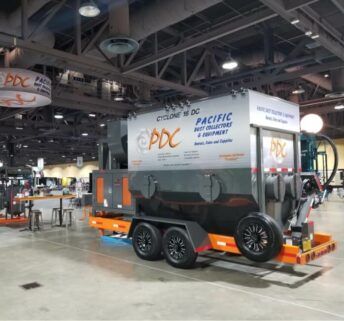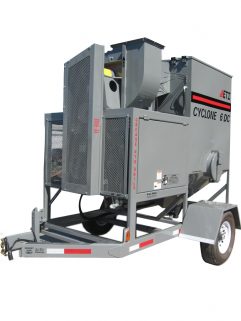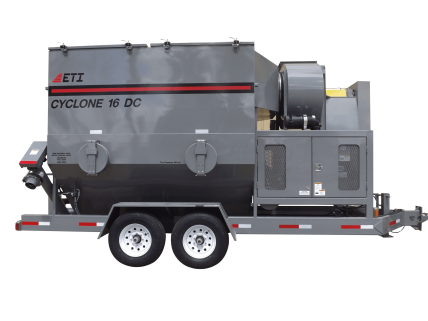Particularly in industrial settings, to meet even the most demanding, large-scale facility needs, industrial vacuum cleaners must be heavy-duty, durable appliances which are frequently custom designed. Industrial vacuums come in different types to fill various demands such as the following:
- Pick up spilled liquid
- Pick up solid particles
- Pick up both dry and wet materials
- Lift heavy or light loads
So, the question arises… Which industrial vacuum is appropriate for your needs? By examining the information below, you will be able to make a more informed decision.
Examine the Maximum Capacity
What kind of capacity will you require? For example, there are wet/dry vacuums that, where big jobs are common, have an up to 55-gallon capacity.
Designed to lift dry loads only, dry vacuums pick up things like dust, fine powders, and other dry particles and filter them.
Consider things like pumps, tilt tanks, and other features when selecting a wet vacuum. These are specially built to handle liquids with a waterproof canister design.
How Much Power Do You Need?
The power of a vacuum is designated by more than just horsepower. These factors matter as well:
Measuring a vacuum's static lift is more important than the CFM. High lift specifications will be held by vacuums designed for lifting heavy metals or liquids. The higher the lift, the lower the CFM.
CFM – cubic feet per minute – is how airflow speed is measured. Inside the vacuum, force draws and collects particles. The higher the airflow CFM, the more volume of particles you can expect to collect. This applies in situations where you're picking up dust particles, flour, fine particles, etc.
Filtration Systems
Many of the questions asked by individuals seeking industrial vacuums revolve around filtration. In some cases, either a standard HEPA filter may be required – or possibly even a ULPA filter – to make sure contaminants do not flow through the air in a facility. Let's look at these filters:
UPLA filter – The letters here stand for ultra-low penetration air filter. By removing no less than 99.99% of particles, these are more efficient than the HEPA filter described below. They even pick up particles as small as 0.12 micrometers in diameter. With a speed that does not exceed 0.025 micrometers per second, the filtering must be slow to ensure high-quality cleaning. Where critical cleaning is positively required, these filters are usually used in settings such as clean room applications.
HEPA filter – Here the letters stand for high-efficiency particulate air filter. According to OSHA, particles of 0.3 micrometers in diameter must be removed with a 99.97% efficiency. How small is that? It's a tiny dot. Smaller than a grain of cayenne pepper or coffee ground. Hazardous substances like dust mites are what HEPA filters were originally created to capture.
What Application Will the Vacuum Be Used In?
Match your specific application with the specifications and features of your industrial vacuum for the highest level of customer satisfaction and best product performance. Every detail counts from the largest piece of scrap to the smallest grain of powder. Your decision will become easier the more you educate yourself on the application in which the vacuum will be used. The type of material you're collecting can make a difference.
Ordinarily, the following can be safely handled by industrial vacuum cleaners:
- Sawdust
- Food particles
- Spices and flour
- Paint powder
- Dust and debris
- Floodwater
- Coolant
- Metal chips and scrap metal
Are Special Features Required?
Here are some special features and questions that you may want to consider when choosing an industrial vacuum:
- Are ULPA and HEPA filters available/needed?
- Are you in need of a “clean room” vacuum system?
- Do you require an explosion and static proof model?
- For easier disposal, would you make use of tilts and special pumps?
- Got hard-to-reach spaces? For easier access, consider quick connect wands.
- For less stress on wrists and hands – for hands-free carrying – consider portable backpack vacuums.
- For CNC machining industries, coolant filtering is available.
By closely examining all of the above-stated information, you should be able to gain a good understanding of what's required of the industrial vacuum for your needs and setting.



